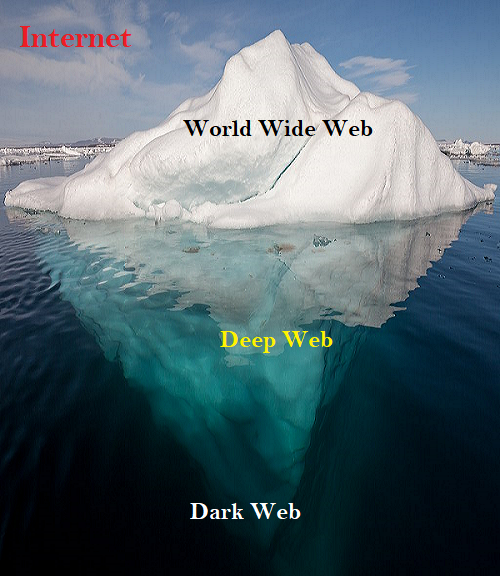The Internet Universe
This article about the Internet is not meant to be technical. It may be too technical for some and not technical enough for others. The intention is to write in such a way that the general public in 2021 might understand.
An Introduction
Imagine
Enter the porthole (browser or app). Look at your map (search engine, if not using an app). Click a button and go anywhere (web page), learn anything (digital book), experience anything (virtual world), be anybody (game character or avatar). Then create whatever you can imagine (code). That is the internet! That’s what I have always thought about the internet.
Does Danger Exist?
I enjoy creating on the Internet. Why do we need security? There are unscrupulous people stealing stuff, kidnapping, stealing identities, and wanting to control what someone else thinks. Companies use the public’s information to make money. Why are these companies making enormous amounts of money and the public left poor and penniless? How does that happen?? Companies/corporations seem to want to control the public. Why?
Some History from the Author
Forty years ago home computers did not exist. The first computer (hardware) I used and the first programs (software) that ran on that computer were very expensive. I knew of programs that only granted licenses for leasing the programs. You could not buy them at all. But the explosion in home computer use and internet use allowed digital companies to lower their prices. You could probably find some of the programs I used on company computers for nothing on the internet today. Other programs may no longer exist.
The Internet consists of so much more than Facebook, Google, Apple, and/or Amazon. Facebook, Google, Apple, and Amazon operate in a large part of the physical/financial area of the earth, also. Google owns YouTube; Facebook owns Instagram. Again, that, in no way makes them the entire Internet.
At one time, storage space was at a premium. Now, imagine filling up one room (floor to ceiling and wall to wall) with flash drives and making them connectable and their information transferable. That is just one room’s worth of space that might be available to be reached on the Internet. Facebook, Google, and Amazon don’t even come close to encompassing the entire Internet.
The speed of the transfer of information used to be a problem. The internet is getting faster all the time. Also, some digital devices need no visible physical connection to anything and still access the internet. Look ma, no wires!!
Digital vs. Real
The internet is digital. What does it mean to be digital? The Internet uses different types of Internet Protocols (coded information) that allow other code to travel from place to place. The coded information allows us to experience the internet in the real world on digital devices. Digital devices are physical devices that are able to decode information. What is code? Ultimately code breaks down into different arrangements of 1’s and 0’s. These 1’s and 0’s were originally nothing more than on and off switches. Different arrangements of 1’s and 0’s create a reaction on a digital device. Another analogy – a weaver creates by moving cords in (off/0) or out (on/1). Atoms make up the physical world; 1’s and 0’s make up the digital world. The Matrix (1999 movie) was not that far from the truth.
View a representation of the actual Internet from the Opte Project.
Browser:
The Door to the Internet
In order to connect to the Internet you need software on your digital device known as a browser. Over the years there have been several browsers. Internet Explorer was one of the first public browsers. Netscape was another early browser that eventually went out of business. You could say that browsers are the public’s Door to the Internet. Below is a list of browsers for accessing the internet through a digital device:
Apps don’t give you a choice of where to go on the internet, unless they are browser apps. Apps take you directly to a particular web site. They could limit your ability to search or they could focus your attention on what needs to be done.
Search Engine
Address Book and Search-Word Look-up for Websites
A browser just brings you on the internet from your digital device. Once you get on the Internet. You need some way to look around. Where you go after that is up to you. Search Engines are your address book to the Internet. Search engines use key words to help you find what you are looking for. Below are some of today’s search engines:
I know there are or have been other search engines. I apologize for those I missed. The Best Search Engines of 2021 on Livewire describes all of these search engines.
Again, apps don’t use search engines unless they are a search engine apps, because they take you directly to a particular location.
What Else is There?
The Web
This is an interesting article – The Web and the Internet are not the same thing :: Infogineering – Master Your Information . I’ve always thought of the Web as being part of the Internet. But I guess, the Internet is the road and the Web is a destination.
The web has long been depicted as an iceberg.

The top of the iceberg is what the general public accesses. These areas are usually indexed by search engines and are easily found by the average person. Search engines have their own web pages. Google started out as a search engine.
The Deep Web is where private stuff is stored. These items are usually not illegal, you just wouldn’t want the public to have direct access to them. Or they can be accessed from indexed pages so they don’t need to be indexed themselves. Or they are unused web pages.
Illegal and anonymous information can be found in the Dark Web. Generally the Dark Web is not considered a safe place to browse.
Click on this link to see an infographic about the Dark Web. Open the link in a new tab. Click on the image to enlarge. This information appears to have been published in 2017.
The Internet of Things (IoT)
There is also the Internet of Things (IoT). The controls for these “Things” are located on the web, yet not accessible to everyone. With the IoT the Internet takes on the process of connecting with “Things” that people use outside of the Internet – smart-phones, real-time security cameras, smart-watches, virtual headsets, body sensors…the uses are endless. If you control something in your home from your smart phone, it is part of the Internet of Things. If an item seems to have a life of its own, it is possibly part of the Internet of Things. Just ask Alexa!
Augmented Reality and Virtual Reality
3D Video Virtual Reality
There are also virtual worlds created on the Internet. Some so-called virtual sites are made exclusively by taking video with a 3D camera. These shots are then stored on the web and accessed through the internet. They can be quite interesting. What you view is real, but usually not in real-time.
Internet Video Games
Virtual worlds can be created for video games. Video games have gotten progressively more complicated and realistic in the last 40 years. People regularly communicate with each other over the Internet while playing games. And the environment and players may have a very realistic yet virtual look about them.
I came across an interesting research research article about gamification which is more in depth that the subject of this article, but quite interesting for those who might be interested: How gamification motivates: An experimental study of the effects of specific game design elements on psychological need satisfaction.
Real-Time Videos
There are also videos that can be viewed in real-time by uploading the information to the internet. This is a common way that security cameras are used now. In the past, the cost of this type of security would be astronomical – not so now.
Linking Virtual World & Real World
Virtual worlds now have the ability to be linked with the actual world – Pokémon Go is a perfect example. This is called “augmented reality” where what is real is seen along with something virtual or web-based. Pokémon Go has virtual buildings attached to Google Map locations and virtual animals (Pokémons) that may pop up anywhere. This is a fun game to play.
An Emerging Problem
A problem with “augmented reality” is that people will move around in the real world using their digital devices that include the “augmented reality”. They may ignore what is happening around them. I fear the potential is there for people not to see children darting out into the street, because they are watching their phones. This becomes a real problem when the game player drives from place to place to find the special areas represented by the game. I have seen players driving and playing the game. At this point, I know of no restraints put on the locations where the game buildings are located, except that they be in public places like parks.
What?
“Who are those people and what are they doing”, was my first reaction to seeing the bazaar driving habits of Pokémon Go people around my house. They tend to drive slowly or just park in the middle of a road. Are they stalking someone or casing the neighborhood? What are they doing? I learned that Pokémon Go players are mostly harmless. But I still worry when I have children over.
View a video about Pokemon Go by clicking the link.
Possible Uses for Augmented Reality
I have seen where augmented reality can be used as a touring aide. There could be the capability of viewing a place on your camera along with a description or other information about a location. Implemented properly this could be very useful.
Virtual Headsets
There are also virtual headsets. Once an individual puts on the headset, they are completely immersed in a virtual world. Sensors determine the range of the virtual world. Body sensors coordinate human actions with what is going on in the virtual world. This is fairly new to me, but watching someone use a virtual headset can be quite amusing.
I’m sure all of these uses and devices can be used for meaningful or even helpful activities. I hope their drawbacks are not severe.
Intranet
Did I hear you say Deep Web? If you know something I don’t, I’m listening. See The Web.
Cloud Computing
Deep Web – see The Web.
Coding on the Internet
So you want to learn how to create on the internet? You used to have to learn some complicated “languages”. But creating has gotten easier over time.
There are all sorts of Internet “languages”. These “languages” are nothing more than easier ways to represent combinations of 1’s and 0’s. I say easier – neither is easy, but the languages are a lot easier than figuring out strings of 1’s and 0’s which were originally just on and off switches.
Check out this Wikipedia page to see a partial list of programming languages. I could add to this list, but that’s a start.
Now you can create websites just by clicking a button. You can enter a website whose purpose is to help you create other websites. But be aware that what you can create on those sites is limited to what those sites allow.
Internet Hacking
As the Internet becomes more and more a part of daily personal and business life, hacking becomes more and more of a problem. How do we keep prying eyes and people that may want to do harm from seeing and acting on information that does not belong to them? Lockable safes used to handle this in the physical world. Do we yet have enough security to handle this in the cyber world?
Data encryption is one way to deter hackers. Anti-virus software can help. Digital fire walls are another deterrent. Just remember, anytime something is found to deter hackers, someone is working to hack that security.
The Dot-Com Bubble:
The Fist “Collapse of the Internet”

Long story short, people were creating websites and receiving lots of money from investors. The stock would go up on a company just because they had websites – nothing else in particular. These companies spent this investment money indiscriminately…basically throwing money all over the place. The market for dot-com companies burst – their stock went from being worth outrageous amounts of money to being worth close to nothing.
A dinosaur from the dot-com bubble was Geo-cities. Click on this link to see a typical example of a Geo-Cities page (found on the Wayback Machine). They gave free space for people to create content on their site and Geo-cities put advertisements on the pages. Hmm…sound familiar? You could pay to have the Geo-cities ads removed.
Some companies from the dot-com era that survived were PayPal and Yahoo!. Yahoo eventually bought Geo-cities and later closed it.
It’s only a theory, but substitute a throwing around of indiscriminate amounts of money with throwing around of indiscriminate amounts of power and/or money and there’s not a lot of difference in 2021 from the original burst of the late 1990’s.
Collapse of Internet?
Did the dot-com bubble really collapse the internet? No, not at all. What it did collapse was the financial system that had been build up surrounding internet businesses. The internet never went anywhere.
Likewise, another collapse won’t collapse the internet. It may collapse some businesses that depend on the internet. But the internet is out there. It keeps growing in available space and increased speed. It is limited only by imagination. We just need more imagination and less greed to make the best use of what is available.
Conclusion
I was so sad to see that as the Internet grew, porn was one of the largest areas of growth. Likewise, kiddy porn has grown. Many of these uses have been created outside the mainstream areas of the Internet…in a darker place. I would like the internet and the web to be good and useful, but like the real world I suppose there will always be both.
My background: Yes, you probably call me old. I finished high school just as hand-held calculators started becoming easily available. College students used typewriters, not word processors, when I attended. I started taking courses about computers in the late 70’s and learned my first computer language then. The internet was not publicly used at that time. Businesses used computers a lot in financial areas when I started working. I learned bookkeeping from a CPA because of the computer knowledge I already had. I worked at a company that bought commodities and was not allowed to use the internet at work when it became available. We were soon able to buy our own computer with an internet connection at home.


Leave a Reply